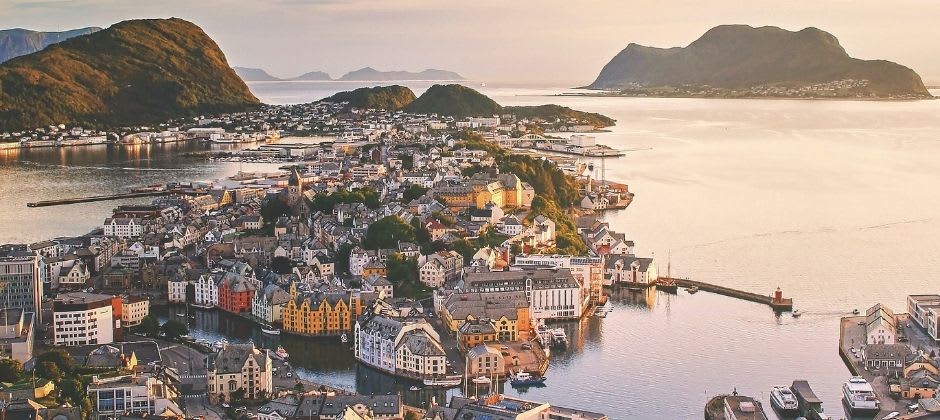Study in Norway: Housing & Living Costs
There are no two ways about it: Scandinavia is expensive. In fact, Oslo has some of the highest living costs of any capital city in the world. This means that you’ll need to budget carefully.

There are no two ways about it: Scandinavia is expensive. In fact, Oslo has some of the highest living costs of any capital city in the world. This means that you’ll need to budget carefully.
International students can find themselves studying right across Norway, but, as Oslo is the capital, these costs will reflect the cost of living there.
Some average costs of living in Oslo (in NOK and USD) are:
- Monthly rent (1 bedroom apartment): 13,100NOK ($1550) *
- Utilities (monthly average): 1200NOK ($140)
- Monthly public transport pass: 770NOK ($90)
- Meal (inexpensive restaurant): 180NOK ($20)
- Coffee: 40NOK ($4.80)
- Milk (1 liter): 18NOK ($2.10)
- Vegetables (1kg): 20NOK ($2.40)
- Eggs (dozen): 35NOK ($4.20)
- Water (1.5 liter): 20NOJ ($2.40) **
- Chicken (1kg): 130NOK ($15.60)
- Wine (bottle): 150NOK ($18)
- Bread (loaf): 30NOK ($3.60)
*Rent in Norway can be expensive. That’s why many students, Norwegian and international alike, choose to live in corridors. These are like dorms in the US.
** You can drink the tap water in Norway, so you won’t have to factor this into your everyday expenses.
The Norwegian Krone is heavily tied to the price of oil, so it can fluctuate a lot. That means that these conversions can change.

The average cost of living for one person in Oslo is about 10,700NOK ($1280) per month. This doesn’t include rent. As in many countries, rent is counted as a separate cost in Norway.
Norway is mostly served by cards. Chip-and-pin and contactless payments are the norm. In fact, some places, particularly in cities, don’t even accept cash.
As Norway is an expensive country, many students choose to take up a part-time job while they study. You don’t need to know Norwegian to find work in Norway. But it can be tough to find work outside of Oslo and Bergen without at least some knowledge of it as most Norwegians also speak English.
As for healthcare, Norway has a great system. Its healthcare is universal, which it’s free or nearly free at the point of access. Your residence permit grants you access to healthcare for most things. You can find medical centers up and down the country, even in more rural areas.
Overview
Norway is known as the Land of the Fjords. But there is so much more to this country than just is natural beauty. This section gives you an overview of what it's like to study in Norway.
Education in Norway
Want to learn about how the higher education system works in Norway? Norway is a popular destination for a variety of students, given its diverse programs, free education and its culture and history. Take a minute to find out more about the structure of the education system in Norway!
Student Visas & Permits
Do you need a visa to enter Norway to study? Learn more about the student visa process, and what you need to enter the country, depending on your citizen status. You will also be required to bring certain documents with you to passport control at the airport, which we cover as well.
Tuition Fees & Scholarships
Tuition fees for degree programs in Norway may vary. However, in general, education at public universities is free for all students. To cover the rest of the costs, there’s plenty of scholarship opportunities.
Language & Culture
Find out more about what Norway offers in terms of language, culture, cuisine, and more!
Application Process
The deadlines to apply for the autumn semester at most universities are in June, however, international students are strongly advised to apply as early as possible and to leave time for sorting out the details.
Programs
Ready to look at education in Norway? Use our search engine to find and compare top programs in Norway.

Keystone Team
Author
The Keystone Team is comprised of experienced educators and advisors dedicated to providing valuable resources and advice to students all over the world.